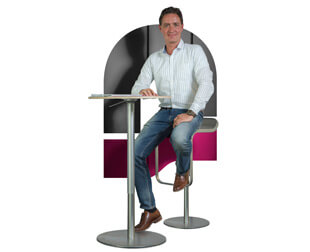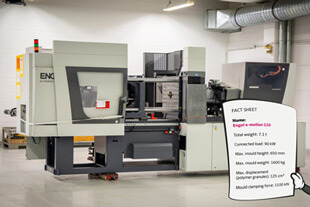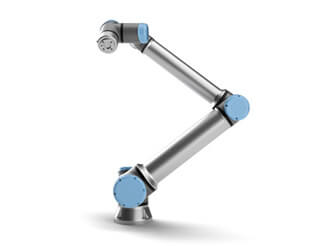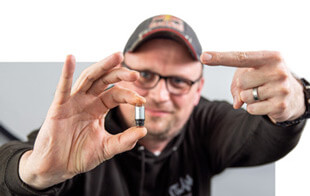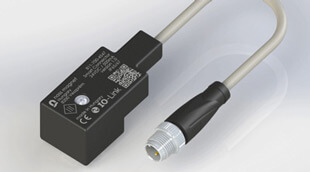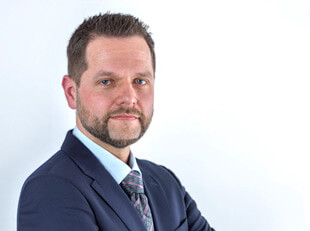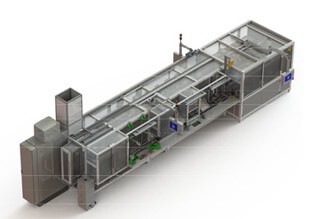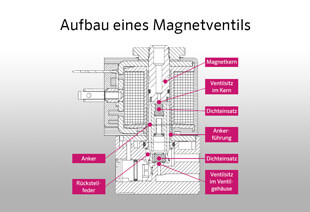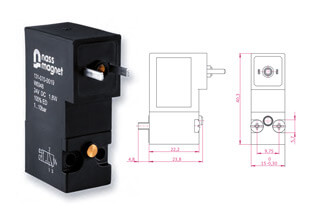A manager‘s perspective
The constant ebb and flow of the economy
A quick question before we begin: Who remembers the crisis of 2008/2009?

During the most recent negotiations with IG Metall regarding remuneration levels, it was almost as if the human instinct for self-preservation by suppressing unpleasant memories had taken hold. All those times of crisis (which were overcome by working together) in which the focus was squarely on security and retaining jobs seemed to have been forgotten. For a very long time, the economic barometer accurately forecast positive trends. So most people found it hard to imagine that this trend might be reversed and that there might be tough times ahead.
Yet this is where we find ourselves once again. Although contrary to the teachings of traditional economics, which posit a recurring cycle of around 7 years on average, this downward trend comes after an almost 10-year period of economic good health. But nothing lasts forever, and this truism extends to the longevity of such periods of prosperity.
The past 10 years of prosperity have made us complacent and lulled us into believing that from now on, things would only get better. In that respect, we have been deceiving ourselves. Because although the latest period of prosperity held out for an unusually long time, it was inevitable that activity would slow once more at some point. This is completely normal: It is simply the way of things. Which is now, unfortunately, overlaid by Corona, leading to a particularly severe downturn.
But when we experience the next economic down-turn, many people are quick to proclaim that the end of the world is nigh – everything is doom and gloom. The economy is on its knees, and the doom-mongers will have their day. „Is the German (automotive) industry still in a good position? Are Germany and the EU adequately prepared in terms of digital modernisation? Is it still possible for us to be competitive despite our high wages and salaries? Do we have enough skilled workers to safeguard our economy? Or perhaps we no longer need industry, and should return to more environmentally friendly old-fashioned arable and livestock farming methods, preferably using a workhorse and a wooden plough? It is even worse than that – is climate change or a virus storm bringing about the end of the world? Or are we facing the prospect of a third world war?“
Prominent publications such as Der Spiegel (issue 33/1974), Newsweek (April 1975) and Time magazine (issues 12-1973, 1-1977, 4-1977, 12-1979), predominantly in the latter half of the 1970s, decried on their front pages the imminent demise of the world due to an impending ice age brought about by the environmental crimes of mankind. But so far, the world hasn‘t ended. Now, we have scientists predicting catastrophic global warming for the same reasons that we were supposed to have entered an ice age back then. Back in 1962, at the height of the Cuban Missile Crisis, prophets of doom were prognosticating the advent of the Third World War. Until the end of the Cold War in 1991, similar warnings abounded, yet the apocalypse we were promised has failed to materialise – despite everything, the planet is still standing.
Do not misinterpret these words: This is not a plea for inaction, but rather a call for common sense to prevail over rash actions to satisfy populist appetites. It is an appeal for active problem-solving rather than burying our heads in the sand. An appeal for balance in place of extremism. For technological development rather than bans.
These are all issues that voters, politicians, statespeople, business owners, managers and organisations must consider. We should keep a constant eye on changes to the world and the environment; we should continuously scrutinise our own performance and productivity, analysing the factors that affect our output and the measures that are needed to maintain it with a view to continual improvement. This applies to every single citizen, but all the more so to responsible politicians, organisations, trade unions and companies. Without a doubt, in times of crisis, stress skyrockets and shortcomings become apparent. We hope that this can be a learning experience for everyone and that this will encourage people to buckle down and do their homework, albeit a little late in some cases.
We think long-term. As is customary for medium-sized family-run companies, we have anticipated the bad times before they happen and prepared ourselves:
- During the most recent round of pay negotiations at the Hanover site, nass magnet GmbH rejected further demands by IG Metall, drawing attention to the economic slow-down that we feared in 2018, the imminent threat of which our negotiating partners were still disputing at the end of 2018. This approach was taken because we want to ensure that our employees are able to benefit from continued job security. No one could have predicted Corona, including us. But the resulting economic crisis shows the importance of caution and thrift in good times to prepare for the bad ones.
- Whilst we did not go overboard with our efforts to be frugal,nor were we wasteful. As a result, we have sufficient reserves to survive this lean period, even if that does mean cutting down working hours in some companies. Many companies have already become victims of the corona shock. We have strengthened the confidence of our financing partners in us through forward-looking management and have therefore been able to hold out so far - albeit with pain and privation.
- We have drawn up our site policy such that there is the option to manufacture each product wherever proves to be optimal in terms of logistics, technical criteria and, in particular, economic criteria.
- We are embracing digital modernisation to a much greater extent than many medium-sized enterprises – in production, in the form of smart connectors and other products, and in IT, in the form of our online shop and the digital sales platform that is in development.
- Our product strategy has been to make sure that we did not put all our eggs in one basket: We have multiple revenue streams across different applications in order to spread the risk. We currently supply the car, commercial vehicle, railway, agricultural, automation, and medical industries, and many more besides.
- We have won and developed new projects that have the potential to be worth a considerable amount of money to us. This has played a key role in securing our future.
- To a large extent, we like to train up our employees ourselves. We are further developing our employee satisfaction initiatives and cultivating a more relaxed, family feel within the company. When it comes to competing for skilled workers, we are in a good position.
But we must remember:
We also make mistakes. However, when mistakes come to light, it is our policy to focus primarily on identifying potential areas for improvement rather than finding reasons to complain.
We are a close-knit team. We are not worried about the end of the world – we are working together to shape our future. We are the secret to our own success. Together!
Klaus Kirchheim
Chairman of the Management,
nass magnet GmbH
